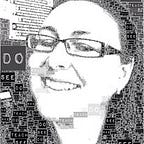Community, collaboration and connectivity
Community is a concept that is constantly being redefined. It’s been debated by everyone from Aristotle to Zapffe, and the arguments will no doubt go on for as long as there are two humans left to form some sort of cooperative unit.
On 1 July FutureWe, in partnership with online social learning and discussion platform Declara, launched an open discussion inviting minds from all over the globe to come together and begin to shape the communities of the future. Following is a summary of what we’ve heard so far.
User-centred design
Among educators there is an overwhelming tendency toward integrating curriculum with passion-based learning and personalised technology. Project-based learning in authentic contexts, with the teacher increasingly the “guide on the side”, allows students to follow their own interests and seek out others who can support and supplement their skills. The classroom community will continue toward greater blending of physical and virtual, with students able to access almost an infinite range of resources, and then use a wide variety of platforms and media to communicate their learning. This element of community is well articulated in The Unmeasurable and Immeasurable Outcomes of PBL by Noa Daniel.
Empathy and EQ
A significant amount of discussion has centred around empathy training and the need to remember that we are human amidst all the artificiality. As industry becomes increasingly depersonalised, it is important to focus on the similarities between us to find connections.
“Our biology is not changing as fast as our tech,” writes Monica Smedbäck Cardozo, FutureWe Launch Team member and ADE. “I for instance ‘obey’ my watch many times a day and kind of get angry at it also. But according to sociology, we have belonging, reference and other types of groups. These could probably ‘overlap’each other in the digital era or the dynamics will be just as they are today in the ‘physical world’. I think they will overlap and thereby the need to train our emotions so we still remember we are people with human emotions that don’t really evolve and change as our conduct does.”
Collaboration, Teamwork and Coordination
Far from the dreaded “group work” of yesterday’s classrooms — hopefully consigned forever to history — future-ready collaborative projects have a more international, cross-cultural scope with the inclusion of easy-to-use technologies such as Skype or Google Hangouts. With this increased possibility comes greater responsibility to be culturally aware and responsive.
“Community needs to be globally aware,” writes Curtin University’s Learning Futures Advisor Kim Flintoff. “Needs to be accepting of dissenting voices and alternative perspectives — needs to be vigilant against ‘groupthink’. Forget notions of ‘positive’ and ‘negative’ and adopt a position of critical neutrality around ideas and the expression of ideas (within the bounds of the maxim of mutuality of liberty).”
Benefit Mindset
A recurring theme in the discussion is that of the need to be thinking about more than the individual. The world of the future faces greater challenges than merely an increase in AI capability. As Kim Flintoff states, “Technological advancement is in many ways tied to our current economically driven globally priorities… there may come a time when they change — when sustainability and survival become real considerations for daily living. We also need to remain aware of more basic biological and systemic requirements for life to exist.”
Benefit mindset is a relatively new term derived from Carol Dweck’s concept of growth mindset. FutureWe director Nick Burnett discusses benefit mindset further in this episode of the Edunauts podcast.
Feedback
Feedback is one of the ‘big ticket items’ in today’s education discussions, and almost inextricably linked with assessment. The educators in our group are almost unanimous in their desire to move away from graded assessment and standardised scores, and toward individualised, continual feedback. In his article Seven Strategies for Improving Student Feedback, John Spencer points out that when providing a grade with feedback “students focused almost entirely on the grade and not on the feedback”. In school, and most certainly in the workplace, our team identifies that there is significant room for improvement in both giving and receiving feedback. Standardised performance evaluations for employees, with binary feedback from checkboxes only, are not contributing to improvement in the workplace — just as a cross or a tick on an exam question does nothing to enhance learning.
The discussion is far from over. There are many more elements of community that need to be considered, and possible solutions that need to be tested by as many people as possible. To join in the discussion, go to:
www.bit.ly/future-community
All are welcome, and more voices mean a better future. As FutureWe founder Jonathan Nalder says,
If not for each other, what do we have — now or tomorrow?
